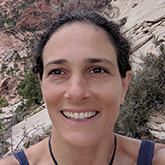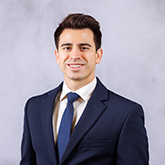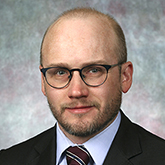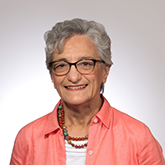 image / Andre Benz, Unsplash
image / Andre Benz, Unsplash
Event Abstract
The data is in: The COVID-19 pandemic has triggered an increase in work-from-home and both commercial and residential relocation away from the city center, matched with a reduction in work-based travel. But is this change temporary or long-term? Did the internet just need the pandemic to bring about a demise of central cities? Or will travel behavior and location choices revert to how it was before the pandemic? What are the net impacts and how should planners respond?
During this symposium, scholars will present their research on employee and employer outlooks regarding the future of work-from-home, and on inter- and intra-metropolitan relocation patterns of firms and households. Keynote speaker Genevieve Giuliano will then position the pandemic in the evolutionary history of cities’ spatial structures and travel patterns. All scholars will then participate in a roundtable discussion about what we can infer from current and past research about the future of the transportation-land use relationship in the post-pandemic world, and how planners and policymakers should consider this.
Symposium organized by Strauch Fellow Zakhary Mallett.
Schedule
| 8:30 a.m. | Continental Breakfast Reception |
| 9:15 a.m. | Opening Comments |
| 9:30 a.m. | Session 1: The Present and Future of Work-from-Home |
| 10:15 a.m. | Intersession Break |
| 10:30 a.m. | Session 2: Pandemic-Induced Household and Commercial Relocation Patterns |
| 11:30 a.m. | Lunch |
| 12:20 p.m. | Keynote Talk and Roundtable Discussion |
| 2 p.m. | Event Close |
Session 1: The Present and Future of Work-from-Home
Abstract
The COVID-19 pandemic sparked vast adoption of remote work practices. Now, as the pandemic wanes, employees and employers are negotiating when and how often to return to the office. Whereas Goldman Sachs’ CEO has insisted employees return to the office full-timeOpens an external link, Disney adopted a four-day return policyOpens an external link, and Airbnb adopted a permanent remote work policyOpens an external link. Estimating where this negotiation will settle has emerged as an imperative factor in assessing future spatial structures and travel patterns in cities and planning transportation and land use for that.
In this session, Deborah Salon and Amanda Stathopoulos will present their recent research regarding worker and employer perceptions about remote work, respectively, including each group’s outlook on the extent to which remote work will stick once the pandemic is declared over.
Speakers
Amanda Blomberg Stathopoulos
Associate Professor, and William Patterson Junior professorship Chair, in the Department of Civil and Environmental Engineering at Northwestern University
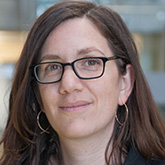 Amanda Blomberg Stathopoulos is an Associate Professor and the William Patterson Junior professorship Chair in the Department of Civil and Environmental Engineering at Northwestern University. After finishing her Ph.D. in Transport Economics at the University of Trieste in 2012, she worked as a post-doc in the Transport and Mobility Laboratory at EPFL. In 2014 she joined Northwestern. Her research centers on transportation systems decision-making, adoption of innovation, and impacts on society. Her scholarship integrates quantitative and qualitative multi-disciplinary insights and develops methods to study how society adopts/adapts to evolving mobility technologies. The goal is to contribute to more effective and equitable planning, design, and policy-setting for new mobility systems.
Amanda Blomberg Stathopoulos is an Associate Professor and the William Patterson Junior professorship Chair in the Department of Civil and Environmental Engineering at Northwestern University. After finishing her Ph.D. in Transport Economics at the University of Trieste in 2012, she worked as a post-doc in the Transport and Mobility Laboratory at EPFL. In 2014 she joined Northwestern. Her research centers on transportation systems decision-making, adoption of innovation, and impacts on society. Her scholarship integrates quantitative and qualitative multi-disciplinary insights and develops methods to study how society adopts/adapts to evolving mobility technologies. The goal is to contribute to more effective and equitable planning, design, and policy-setting for new mobility systems.
She is the vice chair of the National Academies Transportation Research Board (TRB) Standing Committee on Travel Demand Forecasting and a member of the Standing Committee on Statistical Methods. She is a Zephyr Foundation Board member. Her research has been supported by multiple funding agencies such as the U.S. NSF, the Department of Transportation, and the U.S. State Department. She received the NSF Career award in 2019. Stathopoulos was awarded the Best Research on Innovation paper by TRB’s Urban Freight Transportation Committee for the paper “Performance Analysis of Crowd-shipping in Urban and Suburban Areas” in 2018.
Deborah Salon
Associate Professor in the School of Geographical Sciences and Urban Planning at Arizona State University
Deborah Salon is an Associate Professor in the School of Geographical Sciences and Urban Planning at Arizona State University. Salon studies transportation in cities with the goal of better understanding how these systems work, and how policies and smart investments might improve them. She is especially interested in strategies that can improve or maintain quality of life while reducing car ownership and use in cities. The methods she uses range from qualitative, interview-based research to advanced econometric analysis. Salon holds a Ph.D. in Agricultural and Resource Economics from the University of California, Davis. Before joining the faculty at ASU, she completed a post-doctoral fellowship at Columbia University’s Earth Institute and subsequently held a research appointment at UC Davis’s Institute of Transportation Studies.
Session 2: Household and Commercial Relocation Patterns
Abstract
Much public discourse suggests that the pandemic has fueled an “urban exodus” — urban residents fleeing to suburban and rural communities to escape health risks and take advantage of remote work benefits. What’s more, they also gain access to larger homes and lower costs of living. If true, this can fundamentally change travel patterns in many regions, and so effect how transportation and land use is to be planned. But what does the data say? Are people really relocating from the city center? Are firms following them? If so, where are people and businesses flocking to?
In this session, Luis Lopez and Lyndsey Rolheiser will present their recent research measuring urban-suburban changes in the housing and commercial real estate markets, respectively, to draw inferences on intra-metropolitan relocating of individuals and firms. In addition, Stephan Whitaker will present his research on inter-metropolitan migration patterns using population migration data.
Speakers
Luis Lopez
Assistant Professor in the Stuart Handler Department of Real Estate in the College of Business Administration at the University of Illinois at Chicago
Lyndsey Rolheiser
Assistant Professor of Urban and Real Estate Economics at the University of Connecticut
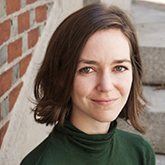 Lyndsey Rolheiser is an Assistant Professor of Urban and Real Estate Economics at the University of Connecticut and a research affiliate with MIT’s Center for Real Estate. Her research is concerned with how spatial relationships within communities inform the built environment and, conversely, how the built environment informs relationships among its inhabitants. Rolheiser’s diverse training in urban and real estate economics, planning, local public finance, and urban policy allows for the exploration of urban complexities using a variety of methodologies and tools — from planning and economic theory to econometric analysis, GIS, and qualitative methods. Rolheiser received a Ph.D. in Urban Economics from MIT, an M.A. in Economics from Simon Fraser University, and a BSc in Mathematics from the University of Alberta.
Lyndsey Rolheiser is an Assistant Professor of Urban and Real Estate Economics at the University of Connecticut and a research affiliate with MIT’s Center for Real Estate. Her research is concerned with how spatial relationships within communities inform the built environment and, conversely, how the built environment informs relationships among its inhabitants. Rolheiser’s diverse training in urban and real estate economics, planning, local public finance, and urban policy allows for the exploration of urban complexities using a variety of methodologies and tools — from planning and economic theory to econometric analysis, GIS, and qualitative methods. Rolheiser received a Ph.D. in Urban Economics from MIT, an M.A. in Economics from Simon Fraser University, and a BSc in Mathematics from the University of Alberta.
Stephan Whitaker
Policy Economist at the Federal Reserve Bank of Cleveland
Whitaker conducts research on migration between neighborhoods and labor markets and migration responses to shocks such as natural disasters. He has also published journal articles on housing markets, municipal finance, and educational attainment.
Whitaker earned his Ph.D. at the University of Chicago’s Harris School of Public Policy. Before entering his doctoral program, he served as a lieutenant in the U.S. Air Force and earned an M.S. in statistics from Colorado State University. Whitaker studied economics at Columbia University as an undergraduate.
Keynote Presentation
Abstract
The COVID-19 pandemic forced a shift to online work, school, shopping, and socializing, and some key benefits of cities disappeared. Lockdowns closed restaurants, theaters, shops, and more. Face-to-face encounters — the hallmark of cities — were suddenly a health threat. Not surprisingly, people began to move away as the amenities for which they paid rent premiums became unavailable. There has been much speculation on whether the changes in individual and firm behavior observed during the pandemic portend a new era for cities. I address the question by considering the effects of COVID-19 on agglomeration economies, a fundamental explanation for the existence of cities. I discuss the benefits and costs of agglomeration and explore how remote work, online shopping, and other major changes may affect agglomeration economies and, in turn, the structure of cities. I conclude that while the value of region-level clustering remains strong, impacts on city cores are more uncertain.
Speaker
Genevieve Giuliano
Distinguished Professor of Public Policy and Ferraro Chair in Effective Local Government in the Sol Price School of Public Policy, University of Southern California
Genevieve Giuliano is a USC Distinguished Professor of Public Policy and Ferraro Chair in Effective Local Government in the Sol Price School of Public Policy, University of Southern California. Her research spans relationships between land use and transportation, transportation policy analysis, travel behavior, information technology applications in transportation, and climate change. She has published more than 200 papers and has presented her research at venues around the world.
Giuliano is a past Chair of the Executive Committee of the Transportation Research Board, a National Associate of the National Academy of Sciences, and a RSAI Fellow in Regional Science. She is the recipient of several awards, most recently the Walter Isard award for distinguished scholarship contribution from the North American Regional Science Association, and designation as Distinguished Professor at USC. She has led the major professional organizations in her field and has served on several National Academy of Sciences policy studies, including the NAS Committee on Global Climate Change.
